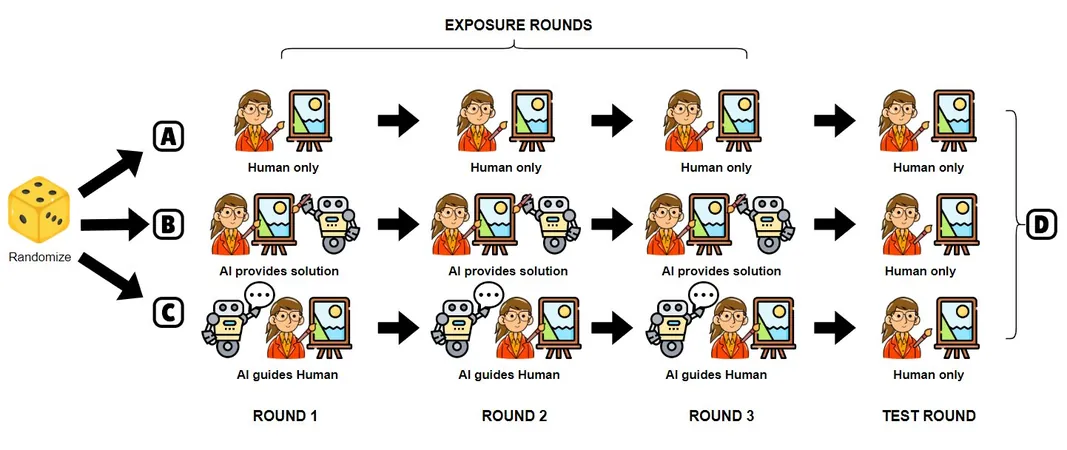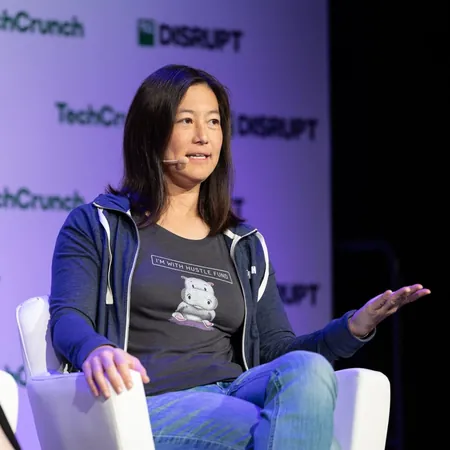
Unveiling the Hidden Effects of AI on Human Creativity: A Startling New Study!
2024-10-30
Author: John Tan
Introduction
In the age of artificial intelligence, large language models (LLMs) like OpenAI's GPT-4o have surged in popularity, assisting people around the globe with tasks ranging from composing emails to crafting imaginative poetry. Yet, while these AI systems excel at facilitating creativity, their impact on human originality remains a subject of intense debate.
Groundbreaking Research
A groundbreaking study from researchers at the University of Toronto has shed light on this pressing issue, revealing that while LLMs can amplify efficiency, they may simultaneously dampen creative thought. "Generative AI tools, such as ChatGPT, are increasingly incorporated into our daily creative processes," stated Harsh Kumar, a leading author of the research. "However, the long-term repercussions of frequent engagement with these tools on human creativity require urgent examination."
Experiment Design and Findings
The study's foundation was built on the premise that reliance on LLMs might hinder our natural creative impulses, likening this phenomenon to athletes relying on performance-enhancing drugs for temporary gains. Researchers designed controlled experiments to investigate how users' creativity was affected both during and after exposure to LLM-generated content.
Participants and Assessment
Participants underwent tasks assessing divergent thinking—requiring them to brainstorm alternative uses for objects—and convergent thinking—where they had to identify a connecting word among provided terms. The outcomes were telling: while access to LLM assistance initially boosted performance, those unexposed to the AI model outperformed their counterparts in later phases of the tests. This raises alarm bells for those who build and utilize creativity-enhancing AI tools, indicating the need for caution regarding users' cognitive development over time.
Idea Homogenization Effect
In a surprising twist, the researchers also noted that the feature of LLMs offering structured guidance exacerbated the problem of idea homogenization, leading to a noticeable lack of diversity in the creative output among users. This homogenization effect persisted even after participants ceased using GPT-4o, suggesting that brief interactions with the AI could result in lasting negative consequences on creative variance.
Cultural Implications
The implications of these findings are profound, potentially impacting not only individual creators but also broader cultural and societal norms surrounding creativity. “The design of LLMs must consider both their immediate advantages and the potential for cognitive decline among users,” cautioned Kumar.
Future Research Directions
As the research team prepares to conduct further studies in more intricate, real-world settings—such as collaborative writing sessions for creative storytelling—the question remains: How can we strike a balance between utilizing the immense power of AI while safeguarding our intrinsic creative capacity? Kumar’s team is committed to exploring innovative design solutions that could mitigate the stifling effect of idea homogenization.
Conclusion
Stay tuned as we follow this ever-evolving narrative, where the intersection of human ingenuity and artificial intelligence continues to reshape our creative landscapes! Are LLMs helping or hurting our creativity? The debate is just getting started!




 Brasil (PT)
Brasil (PT)
 Canada (EN)
Canada (EN)
 Chile (ES)
Chile (ES)
 España (ES)
España (ES)
 France (FR)
France (FR)
 Hong Kong (EN)
Hong Kong (EN)
 Italia (IT)
Italia (IT)
 日本 (JA)
日本 (JA)
 Magyarország (HU)
Magyarország (HU)
 Norge (NO)
Norge (NO)
 Polska (PL)
Polska (PL)
 Schweiz (DE)
Schweiz (DE)
 Singapore (EN)
Singapore (EN)
 Sverige (SV)
Sverige (SV)
 Suomi (FI)
Suomi (FI)
 Türkiye (TR)
Türkiye (TR)